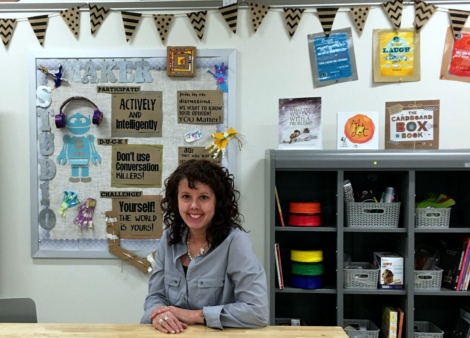Meaningful Fun: Why Video Games Should be Used in the Classroom (Part 2 of 3)
Posted by SM Bruner on
Along with developing in gamers new methods of low-level but useful information processing, games can do an excellent job of teaching content material. Playing the PC game Civilization can teach players about geography and history just as players can learn about graphing and set theory in The Logical Journey of the Zoombinis, and Tetris and other puzzle games may build pattern recognition capabilities (Gee, 1). What makes these games effective teaching tools, though?
David Shaffer and his colleagues at the Academic Advanced Distributed Learning Co-Laboratory at the University of Wisconsin-Madison would posit that games are such good teaching tools because their virtual worlds help develop “situated understanding,” (Shaffer, et al., 4). Instead of sitting in a dorm room in Chicago, reading about economics and neo-Classical thought with respect to currency speculation, a student who has purchased the game Lineage can actually experience speculating on currency (Shaffer et al., 4). This experience happens through a proxy, the player’s character, and the currency may not be real currency (although in many games it can be), but even so the game forges a much closer connection with the abstract idea of economics because its lessons are taught in a relevant situation (that inhabited by the character in the game world), not one far removed from application (the dorm room).
Understanding complex academic language is crucial for success in school (Gee, 15). However, in many cases students learn vocabulary without any real world context and thus cannot use their knowledge in any meaningful way (even if they may pass a vocabulary test). In order to learn the situated meaning of a word (since many words can have many meanings), it greatly helps to have “experienced the images and actions,” to which the word applies. Video games can do an excellent job of situating new language. A good video game will introduce the player to new language only when that language is ready to be applied. This way, the word can be experienced by the player as it is being learned, thus increasing the player’s understanding of the word’s situated meaning, not simply one of its many dictionary definitions.
Additionally, the virtual worlds of games foster interpersonal communication and develop in their players, “a set of effective social practices.” (Shaffer et al., 5) The crux of online games directly involves trading with, competing against, cooperating with, and talking to other human players. World of Warcraft teaches “guildmasters” about “attracting, evaluating, and recruiting new members; creating apprenticeship programs; orchestrating group strategy; and managing disputes.” (Klopfer, et al. 5)
In many cases, this deep interaction between participants is at direct odds with traditional education techniques. Occasionally students will get to share with, collaborate with, and teach each other in group work. How often is it, though, that two groups of students, from opposite poles of the Earth, will get to share their discoveries with each other, comment on each others’ work, and improve their own in response to the feedback they have received from twelve time zones away? In gaming communities, this happens daily.
The final power that games bring as virtual worlds is the ability for players to explore “new and powerful identities,” (Shaffer et al., 6). In many games, players can inhabit and explore spaces that they may never be able to outside of the game, such as ancient China or a planet from Star Wars, but an even more powerful experience that games offer is the taking on of a novel identity, one that often has more power than the player’s identity outside of the game. And while bossing around millions of virtual farmers as an ancient Chinese emperor certainly provides an opportunity for exploration and learning different from those provided a 13-year-old in everyday life, it is entirely possible in an online game for a 13-year-old to become mayor of a virtual town that it is inhabited by characters controlled by hundreds of real people. Certainly the challenges presented to the player in this situation – running a real judicial system and police force, managing a large political campaign, etc. – are not easily found outside of a game.
The skills taught by games’ content (graph reading, political theory, group management) are important, and they stick with players because they are situated in contexts that are meaningful to the players. However, other classroom activities besides video games can be more contextually relevant to students’ lives and more immersive as well. Studying ecology in a crop field near a rural, farm-community school is certainly more relevant than doing so as a scientist on a computer screen, and physically acting out the feudal system, paying m&m tithes to the higher social classes is more immersive than current video games. Indeed, real-life experience is often a more effective teaching tool than video games, but video games can “create learning opportunities and experiences that might otherwise never be able to be created in the traditional classroom,” (Klopfer et al., 8). Games make it possible for students to conduct experiments about how large scale forest fires spread and how to contain and prevent them, when in real life, this kind of experimentation would be incredibly dangerous, harmful to the environment, and illegal. Games are not the silver bullet best instructional method. They are not a replacement of valuable teaching techniques and experiential learning, but rather a useful supplement. Read the rest >>
Bibliography
Facer, Keri “Computer Games and Learning: Why do we think it’s worth talking about computer games and learning in the same breath? A discussion paper” Futurelab 2003
Gee, James, “Why Are Video Games Good For Learning?” University of Madison-Wisconsin
Kopfer, Eric, et al. “Using the Technology of Today, in the Classroom Today: The Instructional Power of Digital Games, Social Networking, Simulations and How Teachers can Leverage Them” The Education Arcade, Massachusetts Institute of Technology 2009
Nieto, Sonia, The Light in Their Eyes: Creating Multicultural Learning Communities New York: Teachers College Press
Prensky, Marc, “What Kids Learn That’s POSITIVE From Playing Video Games” 2002
Shaffer, David, et al. “Video games and the future of learning,” University of Wisconsin-Madison and Academic Advanced Distributed Learning Co-Laboratory 2004
Sizer, T. & Sizer, N. Grappling. In The Students are watching: Schools and the moral contract. Boston, MA: Beacon Press 1999.














